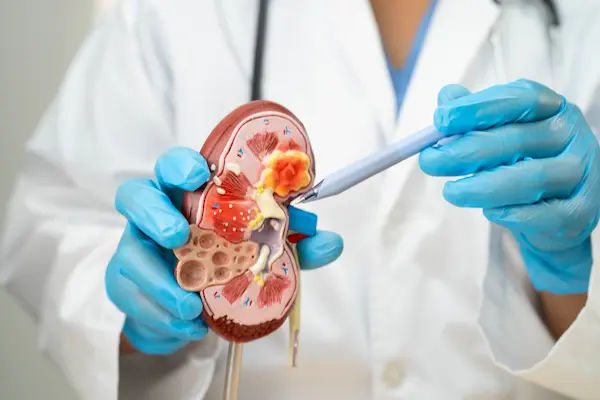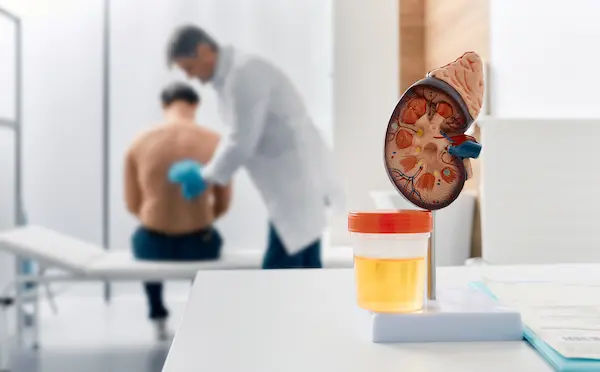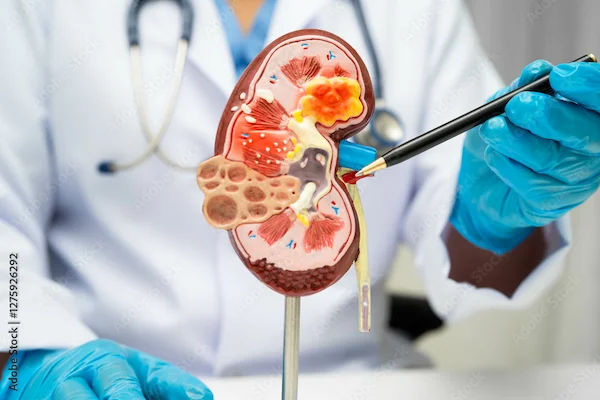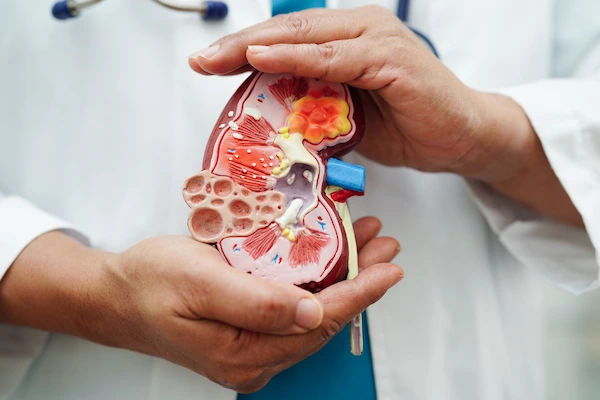- male
- 50 Years
- 31/03/2021
Can kidneys repair themselves?
Answered by 1 Apollo Doctors
New research shows that the kidneys are regenerating and repairing themselves throughout life. Contrary to long-held beliefs, a new study shows that kidneys have the capacity to regenerate themselves.
Dr. Ranjith Suggests...
Consult a Nephrologist
Answered 04/07/2025
0
0

Ask Apollo
AI powered Health Chatbot
-
Kidney Self-Repair Ability
Kidneys can repair themselves to some extent after minor injuries. This includes recovering from mild dehydration or minor infections. -
Limits of Repair
Severe damage, such as from chronic diseases or significant injury, may not be reversible. Scarring and loss of function can occur. -
Factors Affecting Healing
a. Overall health
b. Underlying conditions (e.g., diabetes, hypertension)
c. Timeliness of medical intervention -
When Medical Intervention is Necessary
Seek medical care if experiencing symptoms like persistent pain, swelling, or changes in urination. Early intervention can prevent further damage. -
Importance of Medical Care
Regular check-ups and managing chronic conditions are crucial for maintaining kidney health and preventing irreversible damage.
Answered 20/08/2025
0
0

More Nephrology Health Queries
View allI'm worried about my mom's perfusion index. It's always between 2.3 to 3.1. Should I be concerned? She's dealing with CKD, is on dialysis, and has multiple myeloma. She's 53. What should I keep an eye on with these health issues?
normal range index
Answered by 1 Apollo Doctors
I'm a bit anxious about my recent lab tests. I got both LFT and KFT done, and I'm really concerned about the creatinine and uric acid levels. My creatinine came back at 1.1, and my uric acid is at 7.2. I had chickenpox last December, so I'm wondering if those levels are okay or if I should be worried. What should I do next? I've attached my report for reference.
usee medicine
Answered by 1 Apollo Doctors
I'm really worried about my uncle who's a dialysis patient and is 67 years old. Usually, his blood pressure hovers around 160180, occasionally hitting 120140, but after his last dialysis session three days ago, it's dropped to 10070. Today, during dialysis, it went even lower, between 8090. What can we do to help increase his blood pressure?
Low blood pressure during dialysis may be due to 1. Excessive water removal, than the weight gain between dialysis 2. New onset cardiac problem 3.if the patient is having any internal infection 4. If patient is taking BP medicine before going to dialysis Clearly may be any one of them If the BP is low , dialysis may not be adequately done. Next Steps 2D Echo,ECG Health Tips Stop taking BP medicine before dialysis schedule
Answered by 1 Apollo Doctors
Disclaimer: Answers on Apollo 247 are not intended to replace your doctor advice. Always seek help of a professional doctor in case of an medical emergency or ailment.

 Can kidney damage become permanent?
Can kidney damage become permanent? 



